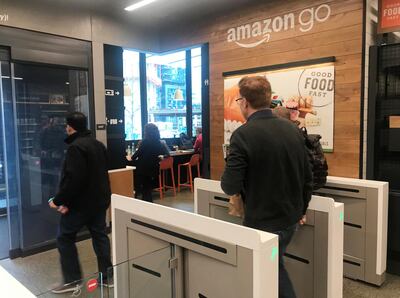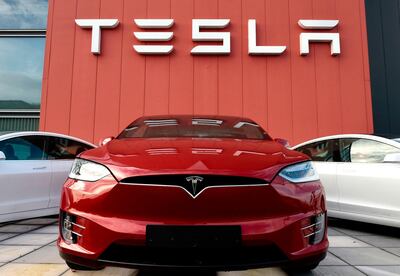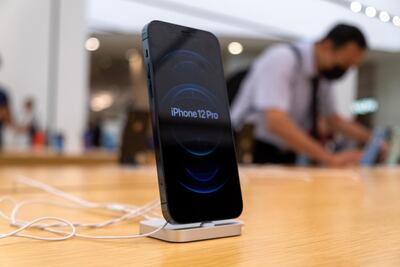Technology has never been more fundamental to the way we live, and the Covid-19 pandemic has only made that integration stronger. When the virus kept us physically apart, our gadgets kept us connected. They were also central to the contact tracing that endeavoured to keep us safe. We can be thankful that such advanced technology was on hand to help us navigate such an extraordinary year, and yet its critical role has put huge power and control in the hands of a small number of private companies. That inherent tension is set to become even more profound this year.
Working lives across the globe will continue to be disrupted over the next few months, as governments and businesses encourage people to work from home to keep the virus at bay while vaccination programmes are implemented and inoculations take place. But technology has shouldered the burden of mass remote working so effectively that it may well be here to stay.
As our homes adopt new identities, doubling as office spaces, classrooms and gyms, we’ll continue to reach for emerging smart home technology, from air purifiers to smart workout mirrors, from digital whiteboards to a mass of entertainment streaming services. The way we communicate will also continue to drift away from text and towards video and audio. Less focus on the keyboard, more on each other. That change will have voice assistants continue their rise to ubiquity.

Augmented, extended and virtual reality will facilitate new advances in education and health. After all, even when the threat of the virus eventually subsides, remote teaching and remote diagnosis will stand to benefit millions of people worldwide. Wearables will log ever more detailed health data, and the idea of physically visiting a doctor may soon become outmoded. The coronavirus has accelerated technological development in other areas, too, most notably the expansion of Amazon's chain of Go stores, where checkout-free shops use cameras and AI to track shoppers and bill them automatically.
Nearly every field of technology will take greater advantage of 5G this year. Last year was meant to be its big moment, but the pandemic caused well-laid plans to be scrapped. In recent months, however, a clutch of new 5G phones – most notably the iPhone 12 range – have been eagerly snapped up by consumers.
According to Swedish company Ericsson, there are already 218 million 5G subscriptions worldwide, a number that has outstripped predictions. Despite conspiracy-fuelled fears about the technology, it is clear that there is now huge demand for it. Devices will become cheaper and networks will continue to expand; 60 per cent of the global population should be reached by 2026, making 5G the fastest-deployed mobile network ever. The impact of this will be felt not only on a personal level, but also across all industries, from farming to gaming, as automation and connectivity come together to create the much-touted “Internet of Things”.

One sector that will benefit hugely from this connectivity is the car industry. Elon Musk, chief executive of Tesla, announced on December 20 that the company will launch its Full Self-Driving subscription early this year, which “enables a new level of safety and autonomy”. Without regulatory approval, human drivers will still be legally responsible for their vehicles, but FSD is set to “offer more insight into how your Tesla perceives the world around you and future Full Self-Driving Capabilities”. Think of it as a proof of concept, reassuring the public that this technology actually works. Meanwhile, across the world, from Arizona to Shanghai, driverless taxis are waging a similar PR drive, carrying passengers safely to their destinations.
The use of 5G will also mean a big increase in the amount of data being generated by us and by machines. That means more computer analysis of how the world works, and algorithms getting better at predicting behaviour. This will inevitably be met with pushback from privacy campaigners.
Facial recognition systems came in for sustained criticism last year, as the implications on civil liberties began to be more widely understood; as a consequence, IBM and Microsoft announced their systems would not be made available to law enforcement agencies. The question of who gets to see the data we generate cannot be forgotten.
Growing piles of data also means a greater dependence on security to keep it safe. Passwords, for so long the ineffective gatekeeper of personal and corporate information, will have to take more of a back seat. Every minute of every day, cyber crime costs the global economy $2.9 million, with about 80 per cent of those attacks directed at password-cracking. Microsoft announced in recent weeks its vision of passwordless access for all its customers this year. More of us will begin to use hardware keys to secure access to the services we use, and not before time.
It’s become traditional to label every year a bad one for Facebook, but in fact every social media network has suffered reputational damage over the past 12 months. The dominance of Facebook, Google and Amazon is set to be challenged by several lawsuits in several territories this year, as lawmakers take action over data privacy, misinformation and anti-competitive behaviour.
But what about the gadgets that used to make technology such a carefree topic of conversation? The entirely virtual CES show, due to take place on Monday, January 11, will have Samsung launch rival phones to the iPhone 12, continue its commitment to foldable tech, and new screens that it's boldly calling "future of the display". It's a small reminder that technology, despite its critical role in society, can still generate a small buzz of excitement for those who love a shiny new toy to play with.


